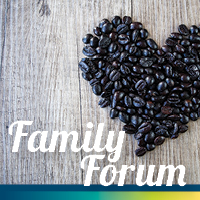
Friends of ours are mourning the loss of a baby who died in childbirth.
QUESTION:
I don’t know what, if anything, to say when I see them next. Should I carry on as if nothing has happened? My first instinct is to say something like ‘Don’t worry, you can try again” but I have a reputation for saying the wrong thing and I don’t want to cause this lovely couple any more pain.
ANSWER:
Losing a baby to stillbirth is devastating for both parents, but also other family members. It can be difficult to know how to support loved ones through this challenging time.
Emma Wotherspoon, whose baby Molly Lola was stillborn, explains: ‘People are often afraid to talk about it for fear of upsetting that person.
‘Although this is meant with the best intention, I can guarantee that person is already upset on the inside. In fact, being able to talk about them will often have the opposite effect.” The Joanna Briggs Institute at the University of Adelaide, with the Stillbirth Foundation Australia, have developed evidence-based guidance for health providers caring for parents who have experienced stillbirth. This work can also be useful to family and friends.
Parents are often unprepared for stillbirth and experience grief, depression, and self-blame. They may feel distressed, sad, angry or even numb. Some appreciate having the opportunity to speak about how they are feeling, while others withdraw.
What family and friends say and do can have a considerable impact on parents’ well-being. Be aware of the individual experience of stillbirth and pick up on cues through your knowledge of them as a person, so you can respond appropriately.
Parents need considerable emotional support both during and after the experience, so communication and interaction should be conducted with sensitivity, compassion and empathy. Understand there is no ‘normal” or ‘right or wrong” response and their feelings are natural. In some cases, one or both parents may benefit from professional support and guidance.
Some suggestions:
• Refer to their baby by name
• Don’t refer to their baby as ‘a stillborn”. He or she was a baby, who was stillborn
• Encourage parents to talk about their baby – at the time of birth and in the years that follow
• Acknowledge that although their baby is no longer with them, he or she is still their baby and a real person
• Don’t say ‘at least you fell pregnant” or ‘you can always try again” – one child does not replace another
• Resist saying you understand how they are feeling – losing a child is unlike any other loss
• Don’t say ‘time will heal” – some never heal from the loss of a child, but learn how to live with it
• It is OK to say ‘I don’t know what to say or what to do”. Acknowledging the loss is support in itself
• Realise that the parents may not be able to be around new babies, and be sensitive around special celebrations such as Mother’s/Father’s Day, and
• Acknowledge the baby at special occasions.
www.stillbirthfoundation.org.au/health-professionals/
Submit Your Questions
Have you got a question you’d like us to tackle?
Fill out the form below or send questions to Family Forum, The Advertiser, 31 Waymouth St, Adelaide 5000.
We treat communications in strict confidence except when the law demands otherwise, as in child abuse.
Relationships Australia SA appoints panels of general practitioners, medical specialists, lawyers, therapeutic and financial counsellors to discuss each letter before the appropriate professional answers it.






